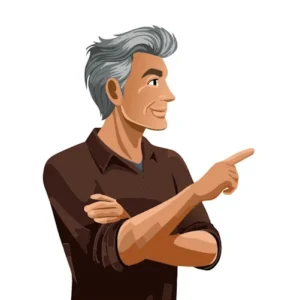Hearing Helper Makes Life Easier For Hearing Aid Users

Sometimes, hearing aids are not enough to hear in noisy settings or from far away. That’s when a hearing helper can make a big difference! A hearing helper is someone who helps you catch sounds, words, or cues you might miss due to hearing loss. Over the years, I have had different hearing helpers, and they have made my life much easier.
Growing Up with Hearing Helpers
As a child, I played outside with my brother. When my mom called us from the house, I couldn’t hear her, but my brother could. He would nudge me or tell me she was calling, and we would head inside together. At school and in the community, my friends did the same thing. They helped me by repeating things I didn’t hear and letting me know when someone was talking to me. I naturally stayed close to people who helped me stay in the know.
Some situations were tricky. At recess, if the teacher rang the bell to call us inside, I wouldn’t always hear it. My friends would wave or tug my sleeve so I knew it was time to go. During birthday parties or community events, I would watch my friends closely to see what was happening next. Without realizing it, I had built a system of helpers around me.
Family as Hearing Helpers
As I got older, my hearing changed, and of course life changes, my spouse became my hearing helper. My children also helped, sometimes in fun ways. One of the learning games we played when they were young was “What is that sound?” They helped me to identify locations of sounds and I got to teach them about the world around them talking about the sounds. As my children became teens and adults they were more aware of the sounds that I was missing.
One day, my daughter taught me something new about greetings in stores. She suddenly elbowed me hard and whispered tersely, “Mom, say hi!” I was confused, but later she explained that the store clerk had greeted us. She wasn’t sure if she should answer for me, so she gave me a nudge instead. That day, I learned to look to clerks for greetings, and she learned to be a gentler hearing helper.
My kids also helped at home. If someone rang the doorbell, they would come find me instead of just yelling, “Mom, someone’s at the door!” If they needed to tell me something from another room, they knew to come closer rather than shouting across the house. We worked together to find ways to communicate better.
Subtle Cues That Help
Now, as my hearing has decreased, my spouse and I use simple cues to help me in conversations. If we are in a big group and someone calls for attention, he taps my leg and points or looks with his eyes to the speaker. If I miss something someone says, I tap his knee, and he repeats it for me. When someone behind me says, “Excuse me,” he gently squeezes my arm and guides me out of the way. These small cues help me all without interrupting conversations.
In restaurants, he helps by letting me know when the waiter is speaking directly to me. He tilts his head toward the person so I know to shift my attention. At large family gatherings, he quietly tells me who is speaking so I don’t feel lost in the conversation. These little adjustments make social settings much easier.
A Team Effort
Combining my hearing aids, my eyes, and a hearing helper makes life easier. A hearing helper can let you know when someone is talking, direct your attention, or help you hear at a distance. If you have hearing loss, talk to your friends and family about what helps you the most. Working together can make everyday life smoother and more enjoyable!
It’s important to communicate your needs. Whether it’s a family member, friend, or coworker, having a trusted hearing helper can make all the difference. By using small signals and working as a team, you can stay connected and fully engaged in the world around you.
Want to learn more about being out and about in your hearing aid and hearing the best you can? Our Out and About with Hearing Aids in Social Settings course covers strategies for all sorts of community interactions to hear your best.—Enroll today!
Want to stay up to date and know when the next blog post is out Sign up for our newsletter today.
